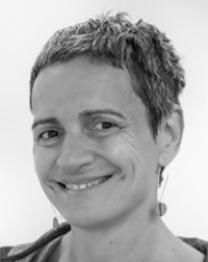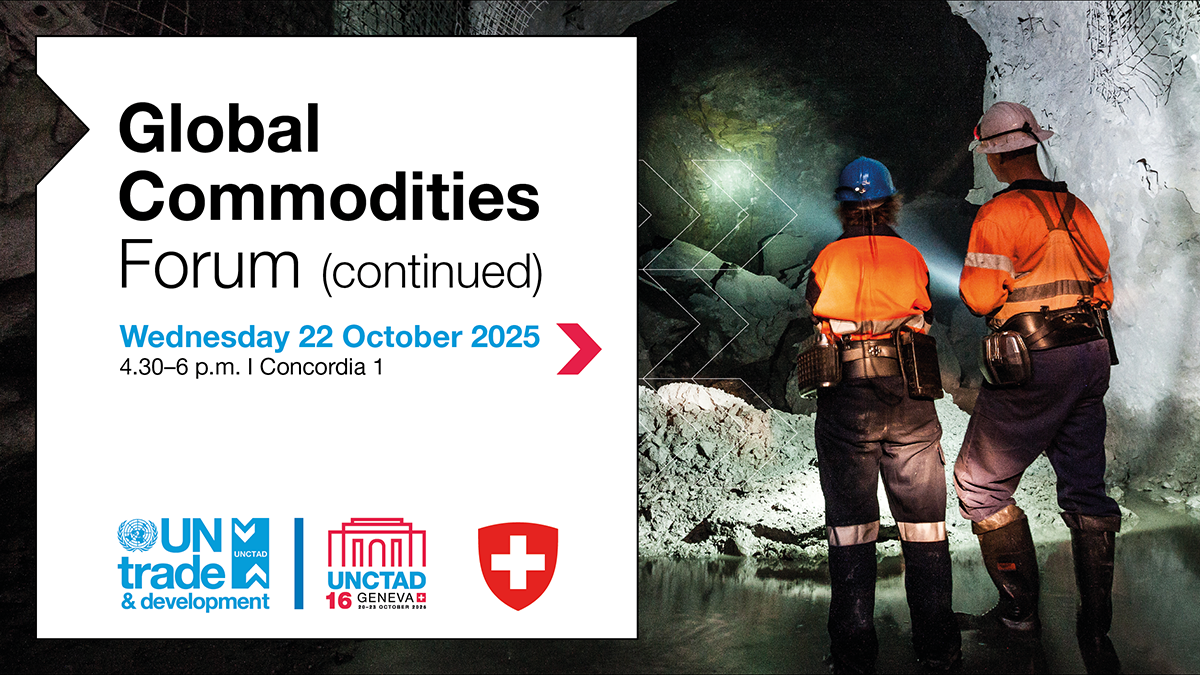
Critical energy transition minerals
The expected surge in demand for critical energy transition minerals presents unique opportunities in developing countries endowed with such minerals to diversify their economies, overcome the limitations of commodity dependence, contribute to global supply chain resilience and ensure a just, equitable and sustainable green transition.
By moving up the value chain and diversifying within and beyond the value chain of critical energy transition minerals, these countries can capture more economic value from their resources, leading to greater economic stability. Value addition also enables them to play a greater role in global supply chains, reducing reliance on a few suppliers, mitigating geopolitical risks and supply chain vulnerabilities. However, the exploitation of such minerals has, to date, lacked cohesive global policy frameworks to align resource demand with sustainable development in producing countries. Effective governance is crucial.
UNCTAD has been playing an essential role as a key facilitator and secretariat co-leader of the United Nations Secretary-General's Panel on Critical Energy Transition Minerals, leading efforts on benefit-sharing, local value addition, transparent trade and supporting justice and sustainability throughout critical mineral value chains. Discussions at the Global Commodities Forum will explore global solutions to ensure that the growing demand for critical energy transition minerals supports both reliable, resilient supply chains and sustainable development in producing countries.
Programme
Panel 2: Critical Energy Transition Minerals - Principle on benefit-sharing, value addition and economic diversification
Discussions at this panel will highlight bottom-up initiatives to implement the principles and actionable recommendations of the United Nations Secretary-General’s Panel on Critical Energy Transition Minerals, focusing on what can be learned from concrete actions for advancing implementation on the ground.
Interactive discussion
Questions:
- How can the global trade system preserve its rules-based integrity while becoming more fit-for-purpose to support the development needs of producing countries, particularly by enabling value addition, diversification and industrial upgrading?
- Which global mechanisms can promote inclusive access to technologies that support not only responsible mining but also enable producing countries to diversify within and beyond the value chain, fostering innovation and structural transformation?
- How can international investment frameworks be reoriented to mobilize development-driven capital into value chains of critical energy transition minerals, particularly for midstream and downstream activities, while ensuring fair risk-sharing and safeguarding national development strategies?
- How can South–South and triangular cooperation be harnessed to build regional industrial ecosystems and shared value chains of critical energy transition minerals, strengthening collective capabilities, technological upgrading and equitable participation in global markets?
- What role can UNCTAD play in supporting developing countries in leveraging the development potential of critical energy transition minerals, to achieve structural transformation and sustainable development?
Format: Davos-style
Moderator: Clovis Freire Junior, Chief, Extractive Commodities Section, Commodities Branch, Division on International Trade and Commodities
[Panel 2 will be preceded by Panel 1 in the Assembly Hall from 11:30-13:00 hrs.]

Grégoire Bellois is Lead, Critical Minerals and Geology with the Intergovernmental Forum on Mining, Minerals, Metals and Sustainable Development (IGF), where he leads the Secretariat’s work on critical minerals, circularity, and sustainable sourcing initiatives. His work focuses on the intersection of mining policy, environment, and the energy transition, supporting governments in navigating the evolving landscape of mineral supply chains and sustainability standards.
With 20 years of experience in the natural resources sector, Grégoire brings expertise in both policy and technical aspects of mining and exploration. Before joining IGF, he was a mining research analyst with the Responsible Mining Foundation in Switzerland, contributing to the development and assessment of corporate environmental, social, and governance (ESG) performance in the mining sector.
As a geologist, Grégoire worked on oil and gas, and mineral exploration projects across Central and West Africa. He also served as an administrator local exploration companies, overseeing technical and operational aspects of resource exploration and development. In addition, he has provided strategic and technical advisory services for the extractive industries as a consultant.
Grégoire has a master’s degree in geosciences from the University of Bordeaux in France. Grégoire speaks English and French fluently and is based in Geneva, Switzerland.
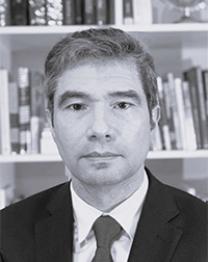
Clovis Freire Junior is Chief of Extractive Commodities Section, of the Division on International Trade and Commodities of UNCTAD in Geneva. He is an Economist specialized in economic diversification and strategies for building productive capacities in developing countries. His work supports the structural transformation and sustainable development of commodity-dependent developing countries.
He has over 20 years of work experience in the United Nations in programmes related to commodity dependence, least developed countries, technology and innovation for development, and disaster risk reduction. He holds a degree in Computer Engineering from the Technological Institute of Aeronautics (ITA), Brazil, a Master’s degree in Computer Sciences from the University de Brasília (UnB), an MBA in Strategic Management of Information Systems from the Fundação Getúlio Vargas (FGV), Brazil, and a PhD in Economics from the Maastricht University, in Maastricht, the Netherlands.

Susannah works to improve governance in the transition mineral supply chain, with a particular focus on preventing corruption, as part of NRGI’s work to accelerate a just energy transition. She conducts research on issues such as licensing and contracting corruption, corruption’s intersection with broader socioenvironmental harms, and mining sector standards and certification schemes. Prior to joining NRGI, she worked for Transparency International UK and the UK Anti-Corruption Coalition.
Susannah has a master’s in international relations from King’s College London and a master’s (honours) in history and politics from the University of Glasgow.
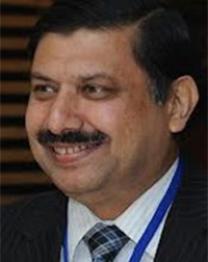
Prof Nagesh Kumar is the Director and Chief Executive of the Institute for Studies in Industrial Development (ISID). In 2024, he was also nominated by the Government of India as an external member of the Monetary Policy Committee of the Reserve Bank of India for a four-year term. He is also a Non-Resident Senior Fellow of UNU-WIDER, Helsinki, and of the Boston University Global Development Policy Centre, Boston, USA.
Prior to taking up the ISID position in May 2021, Dr Kumar served as Director at the United Nations Economic and Social Commission of Asia and the Pacific (UN-ESCAP), holding several senior management roles over 12 years, including as Chief Economist, Director of Macroeconomic Policy and Financing for Development Division and Social Development Division at the UN-ESCAP headquarters in Bangkok and Head of the South and South-West Asia (SSWA) Office located in New Delhi, that he also had the privilege of establishing.
During 2002-2009, Dr Kumar served as the Director-General of the Research and Information System for Developing Countries (RIS), a policy think tank of the Government of India (Ministry of External Affairs). He has also served as an Economist at UNU/INTECH (now UNU/MERIT) in Maastricht, the Netherlands during 1993-1998.
Prof Kumar has served on the boards of the EXIM Bank of India, the International Centre for Trade & Sustainable Development (ICTSD), Geneva; the South Asia Centre for Policy Studies (SACEPS), Kathmandu. He has also served as a consultant to the World Bank, Asian Development Bank, Economic Research Institute of ASEAN and East Asia (ERIA), Commonwealth Secretariat, Commission on Intellectual Property Rights (CIPR), ILO, UNCTAD, UNDP, UN-DESA and UNIDO.
A PhD from the Delhi School of Economics, Dr Kumar is recipient of the Exim Bank’s first International Trade Research Award in 1990, and GDN’s Research Medal awarded by the World Bank and the Japanese Government in Tokyo in 2000, and the Distinguished Alumnus Award from the Delhi School of Economics in 2023.
Dr Kumar has researched extensively on different aspects of economic development, resulting in the publication of 18 books and over 120 peer-reviewed papers, attracting more than 8500 citations at Google Scholar. He also contributes regularly to mainstream newspapers on economic issues.
Dr. Anabel Marín is a Research Fellow and Leader of the Business, Markets & State Cluster at the Institute of Development Studies (IDS) and a researcher at CONICET in Argentina (currently on leave). She holds a PhD in Science and Technology Policy from the University of Sussex, a Master’s in Development from the University of General Sarmiento, and a degree in Economics from Córdoba University.
Her research focuses on the political economy of natural resources, sustainability transitions, and green industrial policy, combining academic leadership with high-level policy engagement in Latin America, Europe, and Africa. She has led multi-country research and impact projects funded by organisations such as ESRC, the Global Consortium for Sustainability Outcomes, and the Conservation Food and Health Foundation, and has advised institutions including the World Bank, ECLAC, IDB, UNCTAD, UNESCO, and UNIDO.
Her recent publications include a contribution to the Oxford Research Encyclopedia of Climate Science on sustainable development in Latin America (Marin, Möhle & Aneise, 2025), as well as articles on civic resistance, governance, and green industrial policy in the IDS Bulletin (2025), IDS Working Paper (2025), and Environmental Research Letters (2025). In 2025, she was awarded the Premio RAÍCES by the Argentine Ministry of Science, Technology and Innovation for her contributions to science and international cooperation.
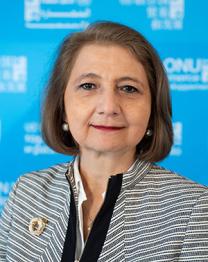
Luz Maria de la Mora is the Director of UNCTAD's Division on International Trade and Commodities. As a former Vice-Minister for International Trade and decades of government and private sector positions, Ms. de la Mora developed a career in international trade policy, negotiation, operations, and trade promotion.
During her tenure as Vice-Minister for International Trade of Mexico from 2018 to 2022, Ms. de la Mora led Mexico's trade and investment policy, overseeing fourteen free trade agreements with 51 countries. To bolster Mexico's development, she steered discussions in the World Trade Organization, the United States-Mexico-Canada Trade Agreement, Comprehensive and Progressive Agreement for Trans-Pacific Partnership, and Pacific Alliance, among others. She also coordinated policy dialogues and handled private sector consultations.
Ms. de la Mora holds a PhD in Political Science from Yale University, USA, a Master's degree in International Affairs from Carleton University, Canada, and a Bachelor's degree in International Relations from El Colegio de México, Mexico.
She is fluent in English and Spanish, and proficient in French.
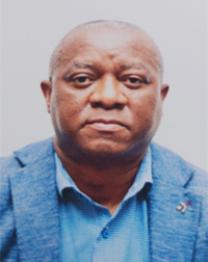
Mr. Gerald Mwila is a Professional Geologist with over 20 years of experience in the mining and natural resources sectors. He holds a Bachelor of Mineral Sciences Degree in Geology (BMinSc.) from The University of Zambia, a Post graduate Diploma in Geographic Information Systems (PgDip-GIS) from University of Applied Sciences TFH – Berlin, and a Master of Science degree in Tropical Hydrogeology, Engineering Geology and Environmental Management (MSc. TropHEE) from Technical University of Darmstadt in Germany.
His extensive expertise spans mining geology, exploration geology, engineering geology, hydrogeology, mineral resource evaluation, geological mapping, remote sensing, and geographic information systems (GIS). He also possesses valuable experience in marine geology as well as water and sanitation projects. In 2024, he was appointed as a member of the UN Secretary General’s Panel on Critical Energy Transition Minerals and he is currently a member of the Environmental Governance Programme (EGP) Advisory Board.
Mr. Mwila is recognized for his strong technical competence and innovative approach to geological problem-solving, having contributed to numerous projects that have enhanced resource evaluation and sustainable mineral development. With a career built on scientific excellence and practical experience, he remains deeply committed to advancing geological research, capacity building, and the responsible utilization of natural resources in Zambia and beyond



